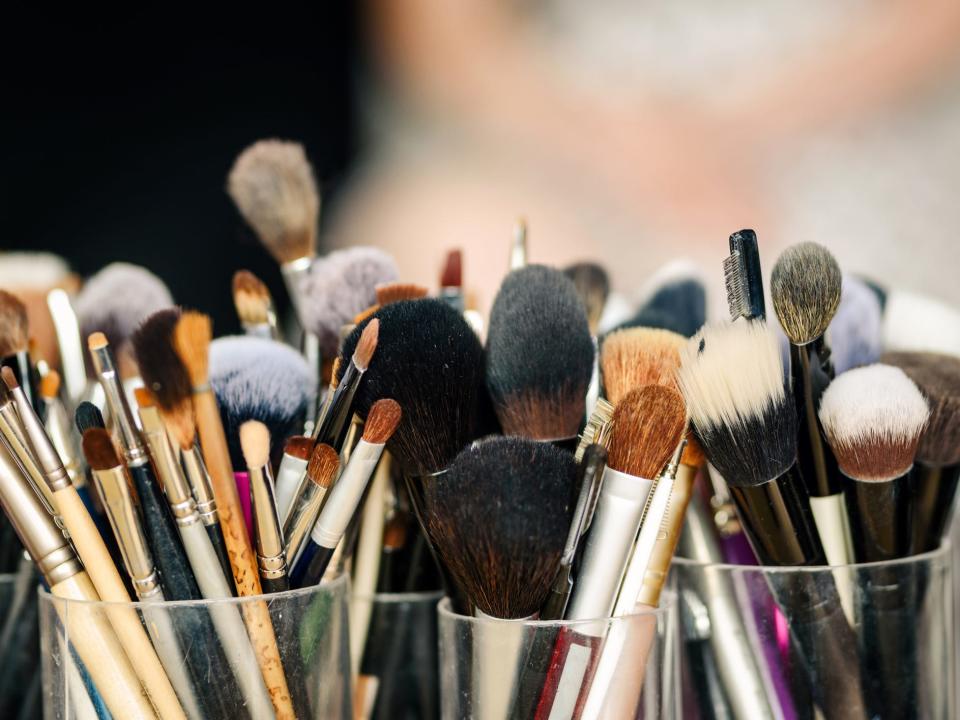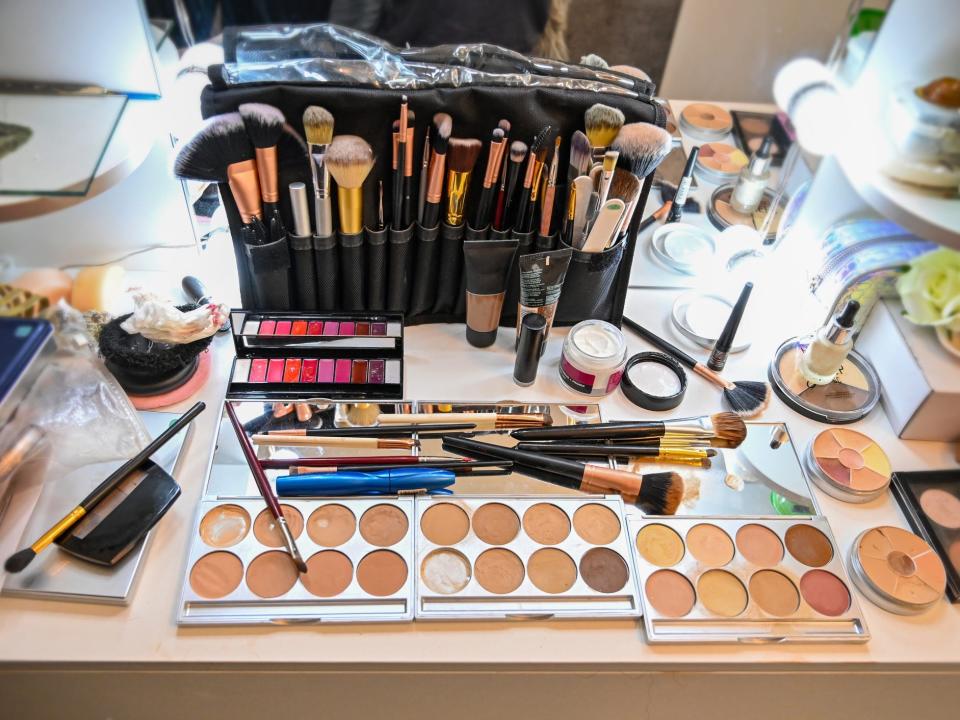7 red flags to look out for when getting your makeup done, according to professional makeup artists

Makeup artists shared the red flags clients should look out for when getting their makeup done.
One of the most important things to look out for is improper sanitation.
Makeup artists should never ask clients to bring their own makeup with them.
Getting your makeup done for big life moments can help boost your confidence and make the occasion even more memorable.
However, finding the right makeup artist for your personal style and needs can be challenging. After all, giving someone control over your facial features on an important day requires a lot of trust.
That's why it helps to know what to look out for when working with a makeup artist.
Business Insider asked qualified makeup professionals to share their insights. Here are seven red flags to look out for when getting your makeup done.
Makeup artists should ask a lot of questions
Hollywood-based makeup artist Alyssa McGinley emphasized the importance of both the artist and the client being on the same page.
"If your artist isn't asking a lot of questions, it can be hard to be sure that you will feel safe and happy with your services," she said.
She recommends looking for artists who inquire about topical allergies and sensitivities, as well as the occasion, your wardrobe, and the makeup you wear daily.
The artist may also want to know additional details about the event you're attending, like if it's indoors or outdoors.
"These details can seem insignificant, but the answers to those questions can greatly impact the products and techniques that artist will use, and ensure your happiness with their services," McGinley said.
All brushes and tools should be properly sanitized

"Getting your makeup done can be such a fun experience, but the artist is dealing with very sensitive parts of your body, such as your eyes and mouth," McGinley said. "It's their job to ensure you're protected from infection and irritation."
McGinley suggests looking out for dirty brushes, sponges, or application tools — they should be mostly free of stains or product buildup. There should also be visible sanitizing supplies like alcohol sprays, wipes, and brush cleaners.
If your artist is working off of a metal, glass, or acrylic palette, it should be free of any product, sprayed with alcohol, and wiped clean before use.
Makeup artists should also have a collection of single-use application tools
"Watch out for artists applying any product straight from the container onto your face, especially when working with cream products like lipstick, cream foundations, and mascaras," McGinley said. "The product should never be applied directly to the skin, as cream products can harbor bacteria and transmit infection."
For this reason, makeup artists should have a collection of single-use application tools, including lip and mascara wands, powder puffs, and sponges.
Jazmin Sykes, an Arizona-based makeup artist and educator, agreed, saying there should only be one dip per disposable applicator to ensure cleanliness and sanitation.
Reconsider working with someone who doesn't have an accurate portfolio of their work
According to McGinley, "Not every artist will have a perfectly curated Instagram feed, but there should always be a source that you can access that shows the artist's collection of work."
She recommends looking for social-media profiles or websites with photo and video examples of their work.
However, when looking at an artist's Instagram page, Sykes suggested remaining vigilant and checking to see if the photos look filtered.
"Look on Instagram to see their work, and most importantly, click on their tagged tab to see what other people have posted about their work," Sykes said. "Their main page can be perfectly edited with filters to look pretty, but the tagged tab will show what clients have posted."
Beware of makeup artists who aren't responsive or communicative
McGinley warned against working with makeup artists who aren't punctual with their responses leading up to your services.
For important events, in particular, there should be plenty of communication beforehand to ensure everyone is on time.
"Everyone has a busy schedule, but keep an eye out for last-minute rescheduling, cancellations, or extended periods of time without communication," she said.
A makeup artist should never ask the client to bring their own makeup

According to Sykes, when a makeup artist asks the client to bring their own products, it's a sign that the artist isn't fully knowledgeable or confident in foundation matching or color theory.
"Asking the client to provide their own makeup shows unprofessionalism," Sykes said.
Instead, makeup artists should come prepared with products for every skin type and shade.
"The only exception where someone should, or can, provide their own product is for a skin sensitivity or medical condition," she added.
It's best to have a written agreement in place, especially for special events
Depending on the occasion and services required, a written agreement may not always be necessary. But for important events like a wedding, it's always best to have a contract or written agreement in place.
McGinley said the agreement should outline the services you expect to receive, a clear date and time, a cost breakdown, and a cancellation policy.
Read the original article on Business Insider


